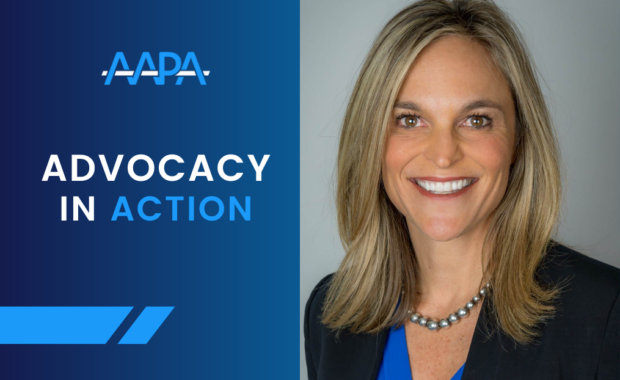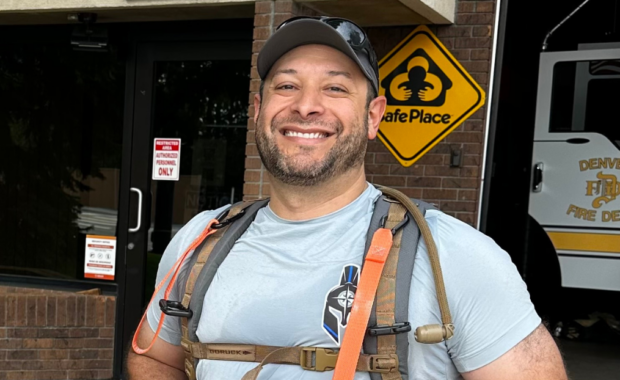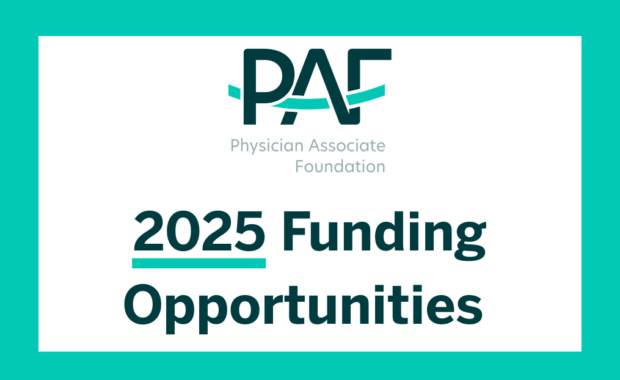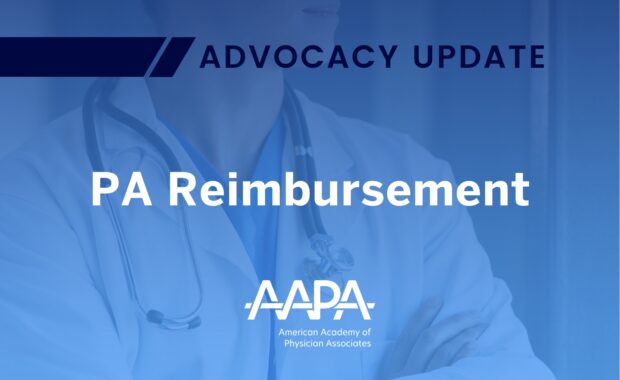PA Program Works to Alleviate Provider Shortages in Rural Michigan
What GVSU Traverse City Campus PA Program is Doing
October 9, 2019
By Kate Maloney
Northern Michigan has a shortage of healthcare professionals. Michigan’s Upper Peninsula (U.P.) alone has 15 counties with multiple federal designations for health professional shortage areas (HPSA), according to Michigan’s 2018 Upper Peninsula Community Health Needs Assessment report. Grand Valley State University recognized that the U.P. needed more healthcare providers, and they set up a distance-learning satellite campus in Traverse City. The goal of GVSU Traverse City Campus PA program is to educate PA students who grew up in or have connections to the U.P. and encourage them to practice rural healthcare – whether in northern Michigan or elsewhere – upon graduation.
[PAs in Rural Locations Ready to Meet Primary Care Needs]
Nicholus Kopacki, PA-C, grew up in Traverse City, Michigan, and is currently the assistant program director and site director for the Traverse City Campus PA program “There’s not a lot of healthcare up here,” he says. “And when I was looking at undergrad and then PA school, I couldn’t get the education I was looking for in northern Michigan.” So Kopacki headed 150 miles south, to Grand Rapids, and Grand Valley State University. He practiced for six years in the Grand Rapids area, but when GVSU moved forward with the Traverse City campus, Kopacki was a natural fit. “I wanted to bring this program and this profession back to the community I was raised in.”
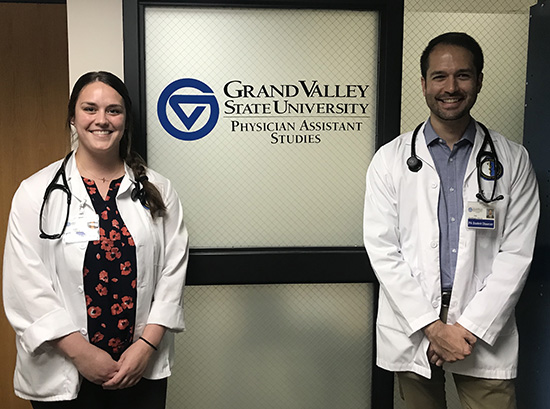
The Students
GVSU Traverse City Campus PA program seeks students from rural northern Michigan who have a passion for rural medicine and practicing in underserved areas. According to Kopacki, their research has shown that students who are from the area are more likely to practice there after graduation. Ashley Thomas, a graduate of the Traverse City campus, grew up in the U.P. “I always knew I wanted to practice in a rural community,” she says. “Growing up, I personally witnessed how valuable it is to have high-quality healthcare providers close to home, and this program was the perfect preparation.” Like Thomas, roughly 70% of graduates have stayed in northern Michigan to practice.
[What would you make in Michigan? Check out AAPA’s Salary Report]
The Cohorts
Each of GVSU Traverse City Campus PA program’s cohorts is small – no more than 12 students. Sarabrooke Mowery, PA-C, says the small class size was a strength of her PA education: “It was very rewarding being one of only 12 students. We really benefited from the faculty/student ratio and we quickly became a small family.” For Rachael Bach, about to start her clinical year, the class size was a selling point for her. “With so few spots available, I knew I would get more one-on-one time with faculty, and I’d get to know the students around me very well.”
The Technology
The GVSU Traverse City Campus PA program has existed for five years, but the campus has only had two classes graduate. “In the beginning,” Kopacki says, “we were working on grant funding and testing our technology.” Since there are only three faculty members at the Traverse City campus, students there attend the same lectures as their Grand Rapids classmates. Kopacki likens the set up to “fancy Facetime.” PA student Jon Studinger says the technology is impressive. “There isn’t any delay between the two campuses,” he says. “There are cameras on the lecturer, both Grand Rapids and Traverse City students, and three projectors. When someone raises their hand in Grand Rapids, we can see and hear the discussion in Traverse City. It feels like everyone is in the same room.”
[Which PA School is For You? 5 Factors to Consider]
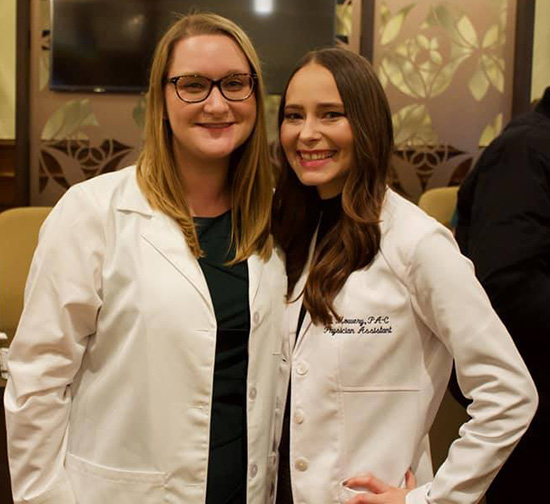
The PAs
Rachael Bach and Jon Studinger are still students in the GVSU Traverse City Campus PA program. Bach admits that her post-graduation path is unclear, but she’s passionate about supporting survivors of sexual assault. She knows that she’s learning everything she needs to a great PA. “This program does an excellent job of ensuring its students are comfortable, happy, and learning what they need to be successful,” she says.
Studinger thinks he’ll return to the U.P., but wants to gain knowledge in different settings and specialties so that he’s the strongest provider possible when he returns to rural healthcare. “The town that I grew up in is considered medically underserved,” he says, “but I never knew that growing up. I want to make my patients feel anything but underserved.”
Mowery and Thomas are both practicing PAs. Mowery’s husband is in the military; she currently practices emergency medicine in upstate New York. “I love being able to provide education and support to patients,” she says. “I get to provide compassion, listen, consult with other providers, and use many of the skills I learned in PA school. The fast-paced environment means there’s never a dull moment!” She’s still passionate about rural health, and she’ll continue to work in healthcare, wherever the military may take her family.
Thomas returned to the U.P. and practices both family medicine and urgent care medicine in Escanaba, Michigan. The most rewarding aspect of her job? “Creating relationships with patients and helping them feel empowered about their health,” she says.
These four current and former GVSU Traverse City PA program students are all devoted to better health for their patients, and to being the best healthcare providers they can be.
Read More
What would you make in Michigan? AAPA’s 2019 Salary Report
Which PA School is Right For You? 5 Factors to Consider
Kate Maloney is AAPA’s senior manager of corporate communications. Contact her at [email protected]
Thank you for reading AAPA’s News Central
You have 2 articles left this month. Create a free account to read more stories, or become a member for more access to exclusive benefits! Already have an account? Log in.
